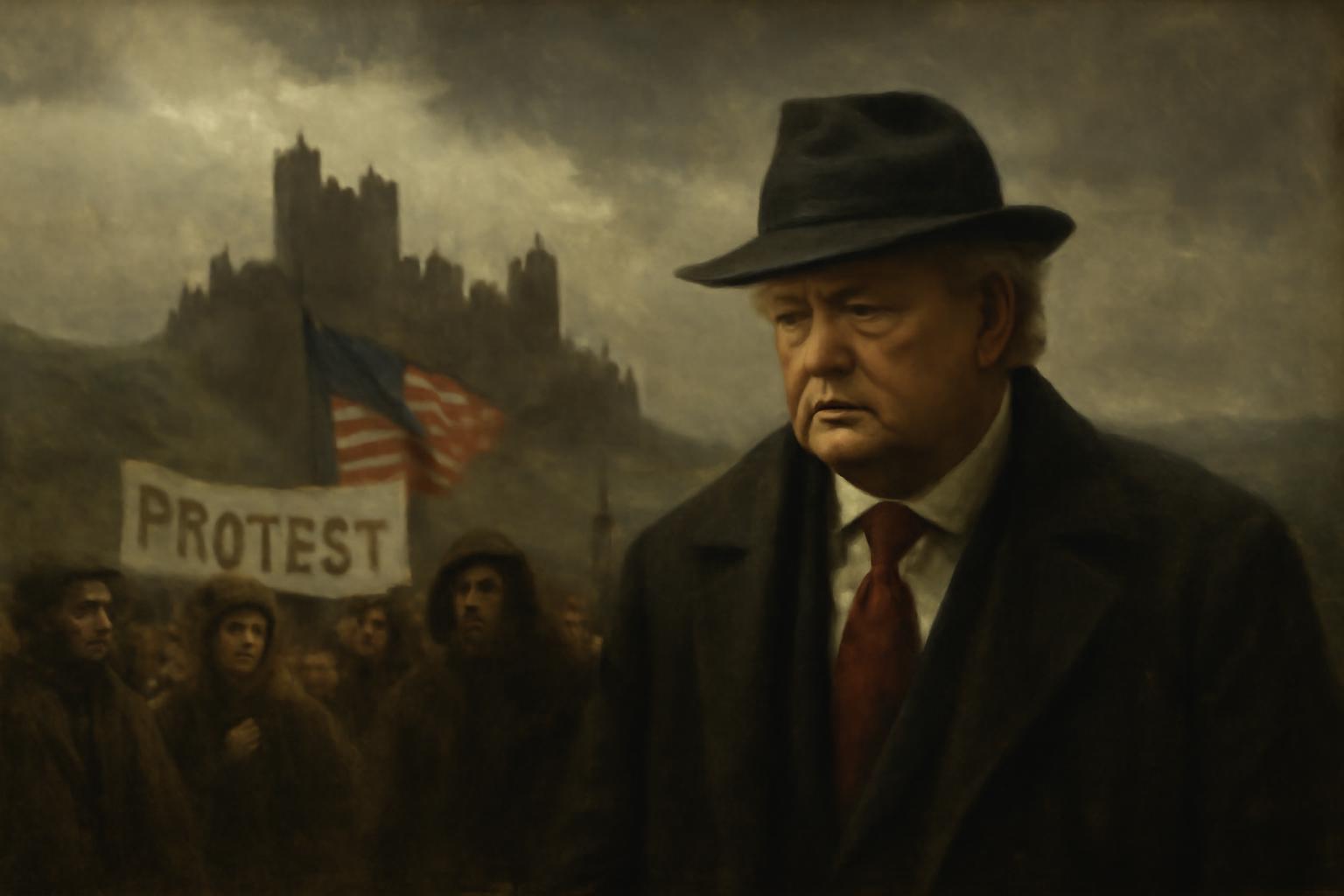Thus the curtain rises on another act of this modern tragicomedy: Donald Trump, the American Emperor, ensconced not in the marble halls of state but amidst the windswept links of Turnberry, Scotland—a once tranquil coastal Hamlet made now a stage for spectacle, protest, and the ceaseless ballet of security apparatus and restless public. The ancient serenity of Turnberry’s coast is shattered; the village awash in a tide of police barricades and anxious mutterings, her burden borne unwillingly on the shoulders of the Scottish taxpayer, whose reward is the faint promise of commerce and an uneasy influx of gawking tourists.
As Wagner’s valkyries once swept down over doomed heroes, here come entourage and controversy in equal measure. Trump’s restlessness persists even amid emerald fairways, the golfing enterprise not merely leisure but an extension of the imperial will—promoting real estate, stoking transatlantic disputes, and forever seeking to recut the tapestry of fortune in his own image. Yet the shadow of scandal, in the form of his liaisons with Epstein’s dark circus, clings tight, an unvanquished Erinys dogging his steps even beyond American shores.
The stage is robed in higher drama, as EU’s Von der Leyen prepares to spar in these Scottish wilds, striving for détente beneath the looming thunderheads of transatlantic discord; their negotiation another parody of the ancient agon, with tariffs as the modern scythe to ancient vines. Trump, ever the Cassandra of contemporary migration, utters dire warnings unseen, while Scotland’s own ministers muster with British Prime Minister Starmer on the Gaza crisis, famine stalking innocent lives as powerbrokers exchange words as brittle and empty as the whisky tumbling in their cups—Scotland’s one true legacy, now hostage to the whims of distant tariffs.
Yet amid these affairs of outsized import, Trump takes to the course, a solitary figure battling the indifferent Scottish squall. There, underneath the weight of empire and the tumult of history, the rain falls equally on king and commoner, a final reminder of fate’s pitiless fairness.
Modernity, in this tableau, reveals itself as a kind of farcical decline: the great statesmen of Periclean or Augustan epochs replaced by tycoons-turned-sovereigns hawking golf and gaudy towers, the noble agon of civic duty reduced to televised deals and half-hearted protests on sodden streets. Nietzsche, weeping in Zarathustra’s shadow, might see the Will to Power vitiated, domesticated, become grotesque; the sublime tragic impulse of Greek theatre perverted into the endless banality of self-promotion. There is no Dionysian catharsis here—only the slow, humiliating entropy of the West, lurching through the rain, clinging to the ruins of seriousness. Would that a wiser generation return to the agon, or that the gods, bored with our pageantry, at last lower the curtain.
